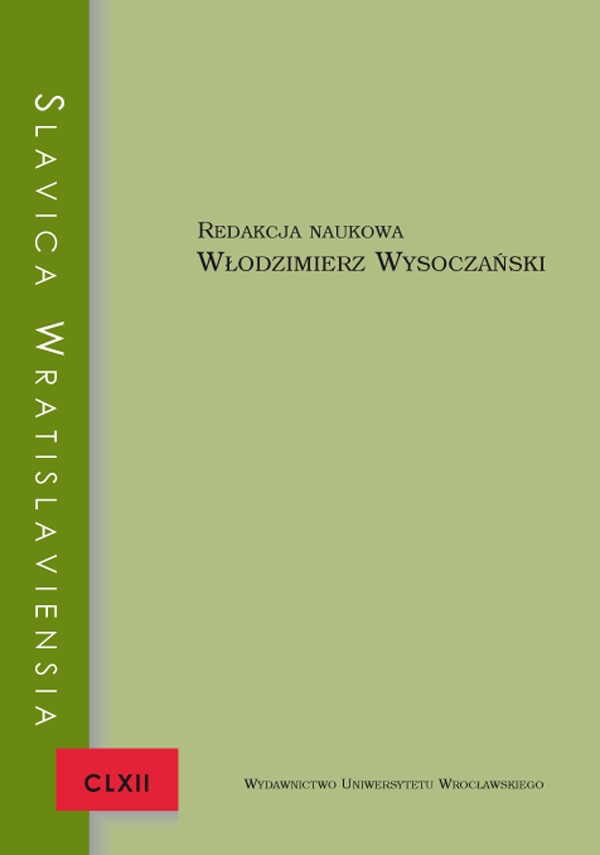

Artykuły

Between nations, between cultures, between languages , between genres. Bora Cosić’s Dnevnik apatrida
This article concerns the issue of internationality, interculturalism and various forms of nomadism present in Bora Cosić’s Dnevnik apatrida. The first kind of writer’s nomadism national-ethnic nomadism is conditioned by his origin. Cosić grew up in amixed Croatian-Serbian community. He was born in 1932 in Zagreb, in a family of Croatian Serbs and when he was five years old he moved to Belgrade where he lived for the next sixty years. There is also acultural nomadism linked to Cosić’s origin, and more specifically, his cultural and literature background. The author circulates like atrue nomad between Serbian and Croatian literature and he is not firmly rooted in either of them. Cosić’s nomadic consciousness is expressed by the language. Thewriter writes in Serbian language with alot of Croatian additions and he is constantly in the process of a language ‘transit’. It may be noted that the author interchangeably uses the ekavian and ijekavian dialect in Dnevnik apatrida maintaining multilingualism to be understood not only linguistically, but also culturally. The fourth kind of nomadism, avery important one for Cosić’s creation, is an artistic-aesthetic nomadism. In his writings, the author combines various elements, uses citation and familiar themes and motifs thus leading an intercultural dialogue with other writers and their works. In Dnevnik apatrida the writer has included many quotes from In search of lost time by Marcel Proust and used them asconstantly topical comments on the socio-political situation in the former Yugoslavia. In addition, the writer’s texts are on the verge of avariety of literary genres. Cosić undertakes akind of playing with forms, conventions and other models of literary expression.
Među nacijama, među kulturama, među jezicima, među žanrovima. Bore Ćosića Dnevnik apatrida
Ovaj je tekst posvećen problematici internacionalnosti, interkulturnosti iraznim formama nomadizma prisutnim u Dnevniku apatrida Bore Ćosića. Prva vrsta piščevog nomadizma nacionalno-etnički nomadizam uslovljena je njegovim poreklom. Ćosić je odrastao umešanoj hrvatsko-srpskoj sredini. Rođen je 1932. godine uZagrebu uporodici hrvatskih Srba, akad je imao pet godina preselio se uBeograd ukojem je živeo narednih šezdeset godina. Sa Ćosićevim poreklom povezan je takođe kulturni nomadizam, atačnije njegova pripadnost kulturi iknjiževnosti. Autor kao pravi nomada kruži između srpske ihrvatske knjževnosti inije čvrsto ukorenjen ni ujednoj od njih. Ćosićeva nomadska svest izražava se ipomoću jezika. Pisac piše srpskim jezikom sdosta hrvatskih dodataka, stalno se nalazi ufazi jezičkog „tranzita”. Može se zapaziti da u Dnevniku apatrida autor naizmenično koristi ekavicu ijekavicu stajući na straži višejezičnosti koju treba razumeti ne samo lingvistički nego ikulturološki. Četvrta, vrlo bitna za Ćosićevo stvaralaštvo vrsta nomadizma je umetničko-estetski nomadizam. Usvojim tekstovima pisac spaja različite elemente, operiše citatnošću, koristi poznate teme imotive vodeći na taj način interkulturni dijalog sa drugim piscima injihovim delima. U Dnevniku apatrida pisac je mnoge citate iz Prustovog Vaskrslog vremena iskoristio kao stalno aktuelne komentare društveno-političke situacije ubivšoj Jugoslaviji. Pored toga piščevi tekstovi nalaze se na granici raznih književnih žanrova. Ćosić vodi svojevrsnu igru sa formama, konvencijama idrugim modelima književnog iskaza.